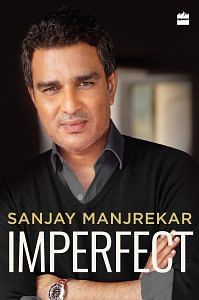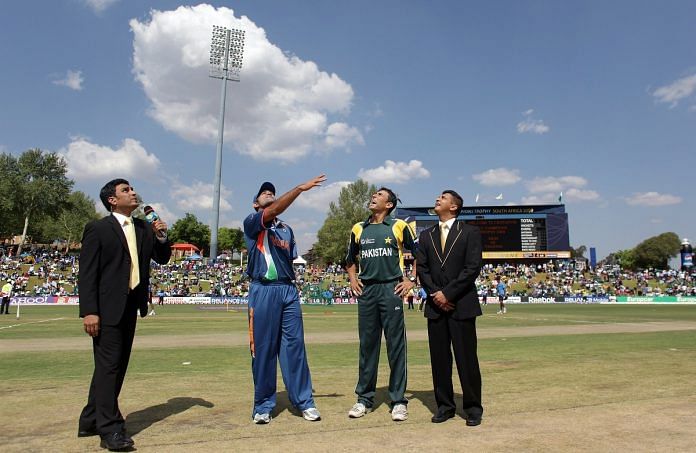In this excerpt from his book ‘Imperfect’ Sanjay Manjrekar talks about the controversial incident in which former Australian cricketer Dean Jones called South African batsman Hashim Amla a terrorist.
I still get compliments for the show we did with Imran and Hussain. In fact, Rahul Dravid told me that this was one show his wife watched diligently, and he too tried to catch it whenever he could. This was incredible to know. I was thrilled that Dravid, who was playing in that series, was one of our viewers.
There have been glitches, though. I remember once when we were ten minutes into a live show and we realised it wasn’t our voices but that of the director’s that was on air. Gaylard, the director, is well known for his colourful language and that’s what now went on air. As a host, I was quite used to his swear words, but imagine putting his usual instructions on air for ten minutes for all viewers in the subcontinent. But guess what — we were lucky that day. In fact, we couldn’t believe it — Gaylard didn’t swear even once during those ten minutes. He confessed he himself was shocked.
Then there was the Dean Jones-Hashim Amla incident, when Jones was heard by the TV viewers calling Amla a terrorist. There was a history to this. Jones had just returned from a long stint of commentary in the West Indies where the director there had shackled him a bit. He hadn’t let Deano be Deano. He kept stopping him from talking excessively. Basically, Jones had been on a leash for more than a month, and he was suffering.
After that, he was like a prisoner set free when he joined us in Sri Lanka. There was no one here to nag him, and he was now in his element. Interestingly our head of production at Ten Sports had a little chat with us just a couple of days before the incident, asking us to be careful about talking too loudly in between overs, even if it was off the mic, because not everyone is taking commercial breaks and when it’s silent you can hear what’s being said even when the mics are down. ‘Especially you, Deano,’ he said, pointing his finger at the man.
To get a few laughs in private, Jones had nicknamed Amla ‘a terrorist’ on that tour. By all means, this was locker-room humour. As it turned out, Amla took a catch, and a highly excitable Jones thought that we were off air and that everyone was on a commercial break, turned back towards us in the back of the commentary box and said the fateful lines.
Viewers were right to get angry at this, even if the commentator was not saying that into his mic and was under the impression that the whole world had gone for a break. To expect everyone to understand this kind of humour and not receive any backlash for it was also being very naive.
Ten Sports did the right thing. I read out an unconditional apology on behalf of the channel the next day, and Jones was sent home. When he approached Amla to apologize, Amla showed his class by immediately forgiving him for what he had done.
I met Jones that evening. He is quite a character. Anyone in his position would have been completely shattered by the episode; I know I would have been but he seemed to get some kind of kick out of it, not because he was labelled a racist – which he is not – but from the attention he was getting from the incident. At least that’s what I thought when I talked to him briefly as he was getting ready to catch the flight back home.
This incident shows the kind of tightrope a commentator was on. A flourishing career could come to an end in the blink of an eye. We want to be funny sometimes, but even while indulging in some humour, we must stay clear of matters of great sensitivity. As commentators, we address a universal audience. It’s better to stick to a language that offends no one.
There is a video of me on YouTube saying things before we went on air. Which is why I now follow the mantra: once on air, always on air. Even when the mics are down and you think you are in a commercial break. Once you’re wired up, in the studio or in the commentary box, there is always someone hearing you or recording you even of the show has not begun. I guess the money we earn doesn’t come as easy as some might think.
The next two excerpts will talk about the infamous 1996 World Cup semi-final against Sri Lanka and Manoj Prabhakar.
Manjrekar describes his playing days with Manoj Prabhakar. Especially the series against West Indies in 1994-95. Prabhakar stepped up to open the batting, when other senior cricketers didn’t want to.

Imperfect by Sanjay Manjarekar’ has been published by Harper Collins India. Excerpted with permission from Harper Collins



